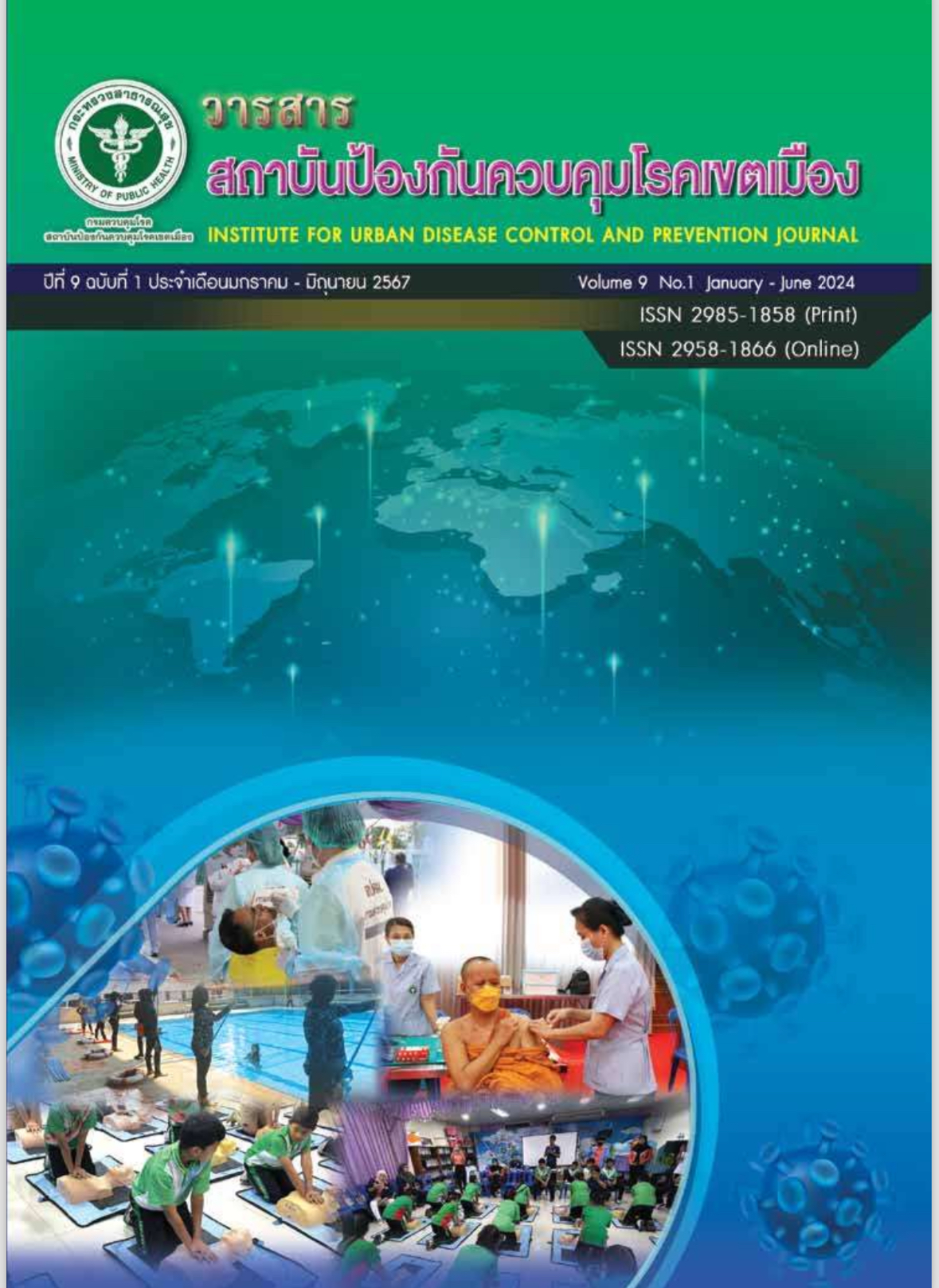Artificial intelligence (AI) has the potential to surpass the challenges in diagnosing infectious diseases
Main Article Content
Abstract
Infectious diseases present a global risk, and diagnostic tools are crucial for identifying infections. Accessing traditional methods, especially in remote hospitals, is difficult. Point-of-care testing (POCT) is efficient, although their interpretation is prone to inaccuracies and prejudice. The aim of this review article is to demonstrate the significance and use of Artificial Intelligence (AI) in aiding the diagnosis of infectious illnesses.
AI has the potential to enhance disease surveillance, although it is currently constrained by constraints. Machine learning (ML) can address these challenges. AI and ML might become the main emphasis in medical diagnosis, treatment, and assessment. Challenges such as restricted data availability, the requirement for supplementary models, and a lack of understanding among AI professionals impede the use of AI technologies in healthcare.
In conclusion, AI has the ability to help diagnose infectious diseases using machine learning approaches, offering accuracy, effectiveness, and data accessibility, with opportunities for additional progress.
Article Details

This work is licensed under a Creative Commons Attribution-NonCommercial-NoDerivatives 4.0 International License.
บทความที่พิมพ์ในวารสารสถาบันป้องกันควบคุมโรคเขตเมือง ถือว่าเป็นผลงานวิชาการ งานวิจัยและวิเคราะห์ ตลอดจนเป็นความเห็นส่วนตัวของผู้เขียนเอง ไม่ใช่ความเห็นของสถาบันป้องกันควบคุมโรคเขตเมือง หรือคณะบรรณาธิการแต่ประการใด ผู้เขียนจำต้องรับผิดชอบต่อบทความของตน
References
Abimbola Ayorinde, Iman Ghosh, Ifra Ali, Iram Zahair, Olajumoke Olarewaju, Megha Singh, et al. Health inequalities in infectious diseases: a systematic overview of reviews. BMJ Open. 2023 Apr1;13(4):e067429.
Walker DH. Principles of Diagnosis of Infectious Diseases. Pathobiology of Human Disease. 2014;222–5.
Lopera TJ, Alzate-Ángel JC, Díaz FJ, Rugeles MT, Aguilar-Jiménez W. The Usefulness of Antigen Testing in Predicting Contagiousness in COVID-19. Microbiol Spectr. 2022 Apr 27;10(2):e0196221.
Musso D, La Scola B. Laboratory diagnosis of leptospirosis: A challenge. Journal of Microbiology, Immunology and Infection. 2013 Aug 1;46(4):245–52.
Wong F, de la Fuente-Nunez C, Collins JJ. Leveraging artificial intelligence in the fight against infectious diseases. Science. 2023 Jul 14;381(6654):164–70.
Lotfi M, Hamblin MR, Rezaei N. COVID-19: Transmission, prevention, and potential therapeutic opportunities. Clin Chim Acta. 2020 Sep;508:254–66.
Polechová J, Johnson KD, Payne P, Crozier A, Beiglböck M, Plevka P, et al. SARS-CoV-2 rapid antigen tests provide benefits for epidemic control - observations from Austrian schools. J Clin Epidemiol. 2022 May;145:14–9.
Picardeau M, Bertherat E, Jancloes M, Skouloudis AN, Durski K, Hartskeerl RA. Rapid tests for diagnosis of leptospirosis: Current tools and emerging technologies. Diagnostic Microbiology and Infectious Disease. 2014 Jan 1;78(1):1–8.
Sakai T, Morimoto Y. The History of Infectious Diseases and Medicine. Pathogens. 2022 Oct 4;11(10):1147.
Shang M, Guo J, Guo J. Point-of-care testing of infectious diseases: recent advances. Sens Diagn. 2023 Sep 14;2(5):1123–44.
Costa E, Lopes AA, Sacramento E, Costa YA, Matos ED, Lopes MB, et al. Penicillin at the late stage of leptospirosis: a randomized controlled trial. Rev Inst Med Trop Sao Paulo. 2003;45(3):141–5.
Liang F, Wang X, Shao J, Chen J, Liu L, Li H, et al. Comparison of clinical features on admission between coronavirus disease 2019 and influenza a among children: a retrospective study in China. BMC Infect Dis. 2021 Apr 17;21:365.
Dong J, Olano JP, McBride JW, Walker DH. Emerging Pathogens: Challenges and Successes of Molecular Diagnostics. J Mol Diagn. 2008 May;10(3):185–97.
Lee S, Bi L, Chen H, Lin D, Mei R, Wu Y, et al. Recent advances in point-of-care testing of COVID-19. Chem Soc Rev. 2023 Dec 11;52(24):8500–30.
Pai NP, Wilkinson S, Deli-Houssein R, Vijh R, Vadnais C, Behlim T, et al. Barriers to Implementation of Rapid and Point-of-Care Tests for Human Immunodeficiency Virus Infection. Point Care. 2015 Sep;14(3):81–7.
Biswas A, Ray R, Khamrai A, Paul D. PERFORMANCE OF RAPID ANTIGEN TEST IN COMPARISON TO REAL-TIME RT-PCR IN DIAGNOSIS OF COVID-19 INFECTION: A SHORT STUDY. Asian Journal of Pharmaceutical and Clinical Research. 2023 Jul 7;44–7.
Pandya S, Thakur A, Saxena S, Jassal N, Patel C, Modi K, et al. A Study of the Recent Trends of Immunology: Key Challenges, Domains, Applications, Datasets, and Future Directions. Sensors (Basel). 2021 Nov 23;21(23):7786.
Parums DV. Editorial: Infectious Disease Surveillance Using Artificial Intelligence (AI) and its Role in Epidemic and Pandemic Preparedness. Med Sci Monit. 2023 Jun 1;29:e941209.
Rohaim MA, Clayton E, Sahin I, Vilela J, Khalifa ME, Al-Natour MQ, et al. Artificial Intelligence-Assisted Loop Mediated Isothermal Amplification (AI-LAMP) for Rapid Detection of SARS-CoV-2. Viruses. 2020 Sep 1;12(9):972.
Samacoits A, Nimsamer P, Mayuramart O, Chantaravisoot N, Sitthi-amorn P, Nakhakes C, et al. Machine Learning-Driven and Smartphone-Based Fluorescence Detection for CRISPR Diagnostic of SARS-CoV-2. ACS Omega. 2021 Feb 2;6(4):2727–33.
Belkacem AN, Ouhbi S, Lakas A, Benkhelifa E, Chen C. End-to-End AI-Based Point-of-Care Diagnosis System for Classifying Respiratory Illnesses and Early Detection of COVID-19: A Theoretical Framework. Frontiers in Medicine [Internet]. 2021 [cited 2024 Feb 4];8. Available from: https://www.frontiersin.org/articles/10.3389/fmed.2021.585578
Khan AI, Khan M, Khan R. Artificial Intelligence in Point-of-Care Testing. Ann Lab Med. 2023 Sep 1;43(5):401–7.


